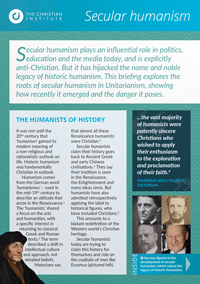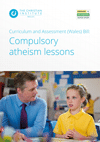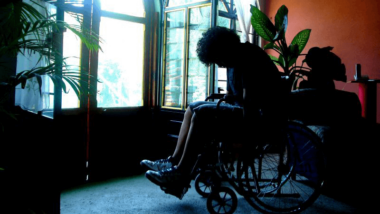An attempt by secular humanists to include atheist teaching in assemblies and Religious Education lessons in academies has been blocked by the Government.
In the House of Lords, Baroness Meacher and others had tabled amendments to the Schools Bill requiring non-faith academies to rename RE lessons as ‘Religion and Worldviews’ and include atheist teaching.
They would also have required faith academies to provide atheism lessons for students whose parents have opted out of religious teaching.
‘Inclusive’
A further amendment tabled by Lady Meacher would have scrapped the requirement for non-faith academies to hold a daily act of collective worship and replace it with a requirement for ‘inclusive’ non-religious assemblies.
Faith academies would have had to provide a non-religious alternative for students whose parents withdraw them from religious assemblies.
She also proposed the scrapping of wording in existing legislation which allows faith academies the freedom to appoint and promote staff whose religious beliefs align with the school’s ethos. The Christian Institute was instrumental in securing these legal protections.
The move would have prevented Christian academies from being able to require teachers to be Christians and to live consistently with their profession.
Religious illiteracy
The amendments were opposed by other peers, with former English teacher Baroness Fox of Buckley saying she feared the requirements for alternative assemblies “would become a secular version of religion, with all its preaching of things I do not particularly like”.
we have a problem in this country of religious illiteracy
She explained that while she is not religious herself, she feels “we have a problem in this country of religious illiteracy”.
The outspoken Peer argued that people have become queasy about acknowledging that “Christianity is the predominant religion in Great Britain”, but that it was wrong to claim that providing religious teaching to non-religious pupils is ‘indoctrination’.
‘Intolerance of Christianity’
Lady Fox continued: “It is also wrong to associate religion with extremism per se, or to imagine that the problems of political extremism that we might see in society are to do with religion — goodness knows that there is plenty of secular extremism about.
“We should also be concerned about a mood of intolerance to Christianity, or even a squeamishness, with people feeling embarrassed by Christianity in this country; I do not think that that is particularly helpful.”
we have a problem in this country of religious illiteracy
She added that peers “should be careful not to demonise religion, religious people or faith in our aspiration to widen education and give more options for non-religious families”.
‘Conflict’
Speaking on behalf of the Bishop of Durham, Martin Warner, the Lord Bishop of Chichester, also opposed the amendments.
He said that the removal of protections for faith schools “may conflict with church school trust deeds and governance documents that require certain staff in a church school to have particular attributes as a genuine occupational requirement”.
In response to the proposals, Conservative Minister Baroness Penn said the Government did not believe changes to assemblies were necessary, as there are already opportunities for pluralistic teaching across other areas of school life, including religious education, history and citizenship.
With regards to the removal of employment provisions for faith schools, she said: “The Government do not intend to change this position for any school with a religious character, including academies. We continue to provide equivalent protections for academies to those available to maintained schools.”
Better outcomes
The Christian Institute’s Education Administrator Daniela Martines said: “It is right and proper that the Government reject these attempts to secularise schools. Baroness Fox is right in her assertions that there is a problem with religious illiteracy in this country, and diluting what little religious teaching and exposure young people have will only serve to exacerbate this.
“Some of these amendments seem aimed at undermining the distinctives of faith schools – a distinctiveness that is appreciated by parents from many backgrounds who opt to choose schools with a Christian foundation.”
Secular humanism plays an influential role in politics, education and the media today, and is explicitly anti-Christian. But it has hijacked the name and noble legacy of historic humanism. This briefing explores the roots of secular humanism in Unitarianism, showing how recently it emerged and the danger it poses.
Curriculum and Assessment (Wales) Bill
There are good laws covering Religious Education in Wales. This framework is to be scrapped and replaced by arrangements which can be controlled by atheists and those personally opposed to religious faith.





